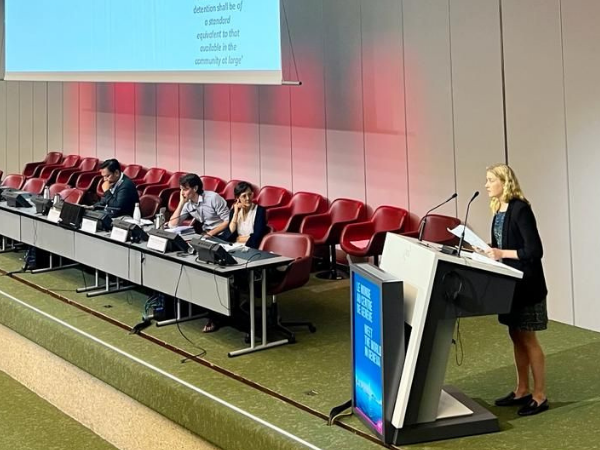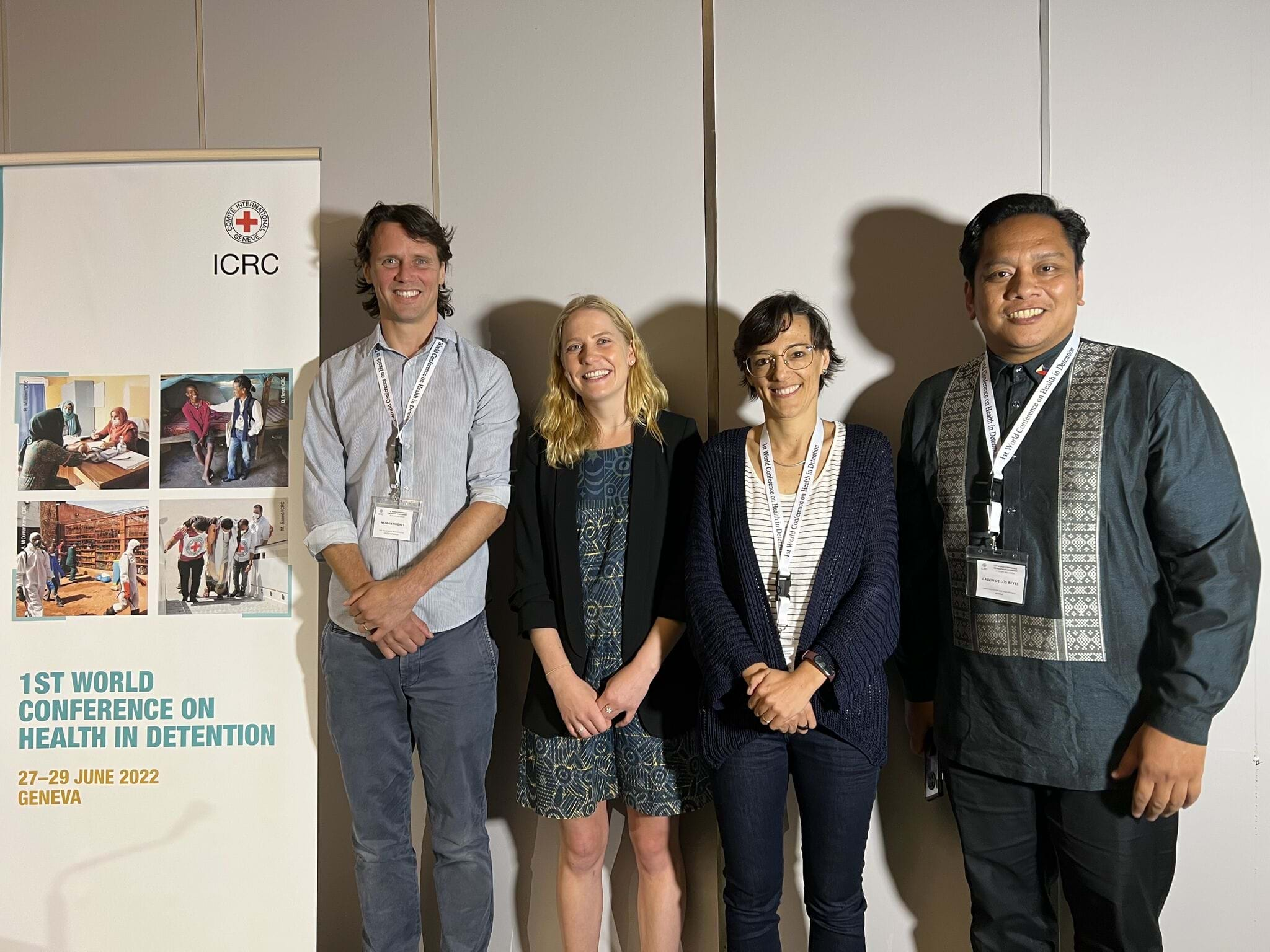10-11-2023
Dear friends,
With the 2024 John Monash Scholars announced, and as we move towards presenting two signature events before the end of the year, the 2023 John Monash Oration (23 November, Commonwealth Bank, Sydney) and the Global Symposium (11-12 December, the University of Sydney), it is timely to be grateful for all the help we have received as a Foundation from our many supporters – in government, universities, the corporate sector and among families and individuals, and of course from volunteers who give freely of their time and skills, very much in the John Monash spirit of community and collaboration. Such a shared purpose is so very special. It’s what makes the General Sir John Monash Foundation such an exciting and rewarding place to work. Thank you. We hope you enjoy this update.
Paul Ramadge
Chief Executive Officer
Saturday is Remembrance Day, the anniversary of the signing of the Armistice that ended World War I on 11 November 1918.
Siblings Dr James Daniell (2009 John Monash Scholar) and Dr Katherine Daniell (2005 John Monash Scholar) are the great-grandchildren of Edward Mattner MC DCM MM, who served in World War I under General Sir John Monash in 1918. Like James and Katherine, Edward was a graduate of the University of Adelaide. He was awarded the Military Cross, Distinguished Conduct Medal, Military Medal and Bar for his personal bravery under heavy shellfire.
We remember all those who have suffered during times of conflict and honour those whose lives have been lost. The Australian War Memorial will commemorate Remembrance Day 2023 with a National Ceremony from 10.45am AEST on Saturday. General attendance at the National Ceremony is welcome and the ceremony will be broadcast live on ABC TV and ABC iView. In Melbourne, John Monash Foundation CEO Paul Ramadge will be among the community leaders laying wreaths at the Shrine of Remembrance.
The annual Poppy Appeal has supported Australian veterans and their families for more than 100 years. You can donate to them here.
|
A landmark legal opinion co-authored by Zoe Bush (2019 Zelman Cowen John Monash Scholar) and Sebastian Hartford-Davis concludes that company directors have a duty to exercise care and diligence regarding the management and mitigation of nature-related risks. Such risks, including deforestation, are understood to be separate but inextricably linked to climate risk.
Commissioned by Pollination Law and the Commonwealth Climate and Law Initiative, the report establishes the importance of nature in underpinning the global economy. It follows that Australia’s economy is heavily dependent on nature, and degradation of nature will therefore negatively impact industry.
The report states that to discharge their duties under the Corporations Act 2001, directors should at least identify their company’s dependencies and impacts on nature and disclose in a directors’ report or corporate governance statement any that pose a material risk of harm.
|
The new Victorian Container Deposit Scheme has been officially launched, with Victorians now able to deposit containers for a 10-cent return at participating locations around the state.
Jim Round (2014 Australian Universities' John Monash Scholar) is the Chief Executive Officer of the scheme, which is designed to better incentivise and strengthen the state’s circular economy.
Almost 400 cash-back sites opened on 1 November, and hundreds more are scheduled over the next 12 months. It is envisaged that there will be a minimum of one collection point for every 14,500 people in metropolitan areas and at least one for every town of 750 people in regional Victoria.
|
Ryan Parker (2020 Chairman's Circle John Monash Scholar) has published a new report in Nature Photonics relating to the development of the world’s first scalable quantum network and its implications for strengthened national data security.
Titled A diamond nanophotonic interface with an optically accessible deterministic electronuclear spin register, the paper is the culmination of about three years of work between Cambridge, MIT and Lincoln National Labs in the United States.
Ryan, who was responsible for leading the research work, explains the science, its technical challenges and what they hope will be the implications:
“In this most recent paper we use the nuclei of individual atoms to store information and transmit it down a network. This result is important as it circumvents one of the toughest challenges for quantum networking – protecting the delicate quantum state used to transmit information from environmental noise.
“Without going into the technical details too much, it is well known that nuclei are the best fundamental particles at protecting quantum information from environmental noise. However, as nuclei interact so weakly with the environment, the very property that makes nuclei so good at protecting quantum information from noise sources makes them almost impossible to control and use, as there is no native communication channel. This paper circumvents this challenge, by using a specific nuclear isotope, the 117Sn isotope, located in an ultra-pure diamond, which has a native communication channel. We anticipate that this latest discovery will be a key resource in the development of a metropolitan-scale quantum network.”
|
Macushla Robinson (2015 Myer Foundation John Monash Scholar) has been featured in Issue 64 of Artist Profile, capturing her perspectives on Hannah Gadsby’s ‘It’s Pablo-matic’.
Since its inception in 2007, Artist Profile has been a leading quarterly arts journal. Its editors commission original work from writers, artists, scholars and other creators to stimulate thoughtful debate relating to the sector. The publication is based in Sydney and focuses predominantly on Australasian artists. Macushla is a doctoral candidate in the Department of Politics at the New York School, New York.
PODCAST: The trailblazers in the 2024 John Monash Scholars cohort
In its 20th year of selecting scholars, the John Monash Foundation has announced sixteen outstanding Australians who will embark on an exciting journey of education and leadership overseas. We sit down with the CEO of the John Monash Foundation, Paul Ramadge, to explore the stories and aspirations of the latest 2024 scholarship recipients and learn more about the Foundation's mission to nurture academic excellence and leadership.
In the media
May Samali (2014 NSW Premier's John Monash Scholar) has been mentioned in an article regarding the closure of WeWork, an organisation that provides shared office spaces for individuals to collaborate. Flexible workers, entrepreneurs and freelancers such as May have been beneficiaries of the model. WeWork, which as of June maintained 777 locations across 39 counties, filed for bankruptcy this week.
Full story
Reuben Finighan (2016 Commonwealth Bank John Monash Scholar) has published an article in The Conversation that considers the role of nuclear in Australia’s race to net-zero emissions.
Full story









